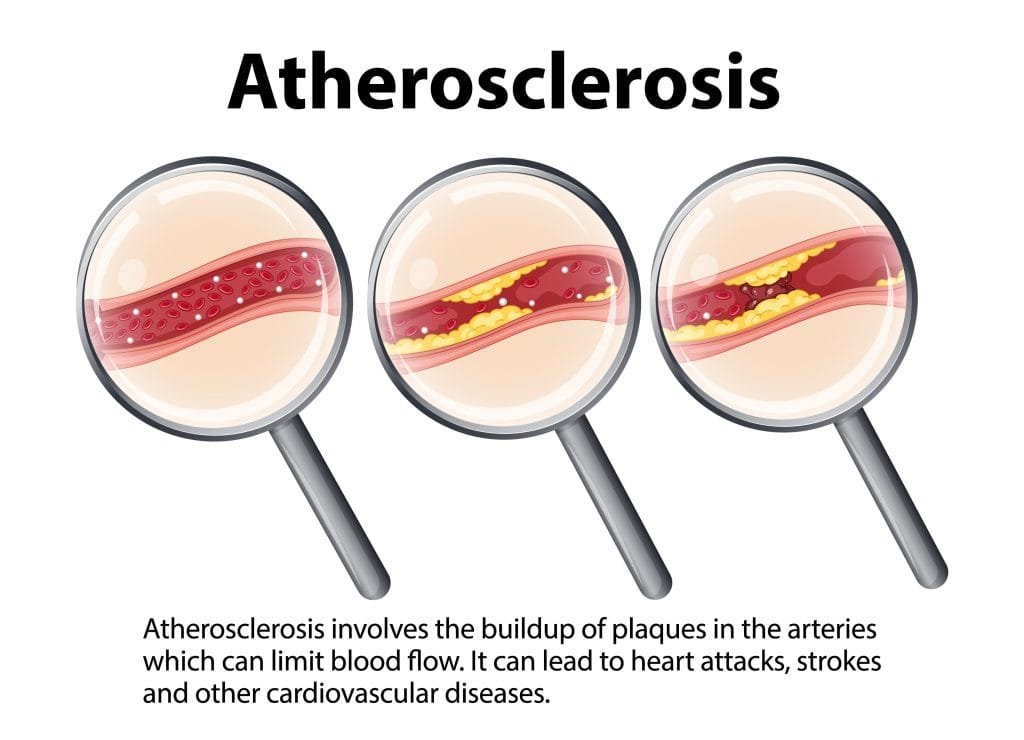Lifestyle Changes

Obesity, defined as the excessive accumulation of body fat, is a significant risk factor for developing cardiological diseases. This is due to the substantial strain put on the heart as it needs to work harder to meet the body’s increased demands. The excess fat tissue leads to inflammation, insulin resistance, and unfavourable changes in blood lipid profiles — impacting heart health significantly.
Increased cholesterol levels can contribute to the development of heart diseases. Cholesterol is a type of fat that is found in your blood. It is essential for various bodily functions, including the production of hormones and cell membranes. However, high levels of cholesterol, especially low-density lipoprotein (LDL) cholesterol, often referred to as “bad” cholesterol, can lead to the buildup of fatty deposits in your arteries. These deposits, called plaques, gradually build up over time and can narrow and harden the arteries. As a result, the blood flow through these arteries becomes restricted, leading to atherosclerosis.
The narrowing of the arteries and the formation of these plaques can create a number of problems. First, it limits the amount of oxygen and nutrients that can be delivered to various organs and tissues throughout the body. This reduced blood flow can cause discomfort, pain, or even tissue damage in the affected areas.
Furthermore, these plaques can become unstable and rupture. When this happens, the body’s natural response is to form a blood clot at the site of the rupture. If the blood clot becomes large enough, it can completely block the artery, leading to a heart attack if it occurs in a coronary artery (the arteries that supply the heart) or a stroke if it occurs in an artery supplying the brain.

Obesity is a major contributor to high blood pressure (hypertension), a significant risk factor for heart disease. The excess body fat requires a greater blood supply, leading to increased blood volume and greater pressure on artery walls. Additionally, adipose tissue produces substances that promote blood vessel constriction. One of these substances is leptin, a hormone that regulates appetite and metabolism. In obese individuals, there is an excess of leptin production, which can lead to an increase in blood volume. Adipose tissues also release inflammatory cytokines, impairing blood vessel function. All of these factors lead to increased blood pressure.
Insulin Resistance, a condition in which the body’s cells become less responsive to the effects of insulin is also attributed to obesity. This hormone helps regulate blood sugar and when disturbed, leads to hypertension.
Moreover, obesity is also a significant risk factor for obstructive sleep apnea, a condition in which breathing is repeatedly interrupted during sleep. This condition is associated with hypertension due to the intermittent drops in blood oxygen levels and the activation of the sympathetic nervous system during episodes of interrupted breathing.
Obesity increases the risk of heart failure, a condition in which the heart’s ability to pump blood efficiently is compromised. The heart has to pump blood to a larger body mass increasing the strain on the cardiovascular system, leading to enlargement and stiffness of the heart muscle. This contributes to impairing the efficiency of the heart to pump blood, causing fatigue and failure over time.
Obesity is often associated with unhealthy lifestyle habits, such as poor diet and sedentary behaviour, both of which further exacerbate the risk of heart disease. A diet high in saturated fats, sugars, and processed foods, coupled with a lack of physical activity, compounds the negative impact of obesity on heart health.
Addressing the concern of obesity holds considerable importance. Implementing specific adjustments to one’s lifestyle, including adopting a well-rounded dietary plan and engaging in a consistent exercise routine, can play a pivotal role in mitigating this issue. Additionally, maintaining regular health examinations is essential to ascertain that obesity is not intertwined with underlying hormonal irregularities or other medical conditions.